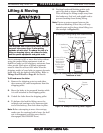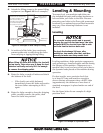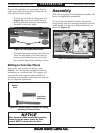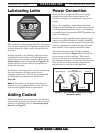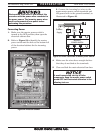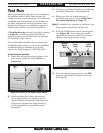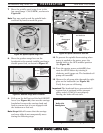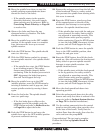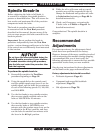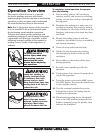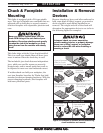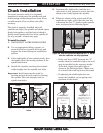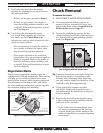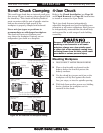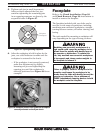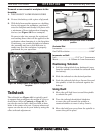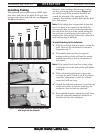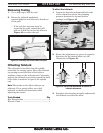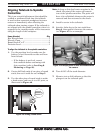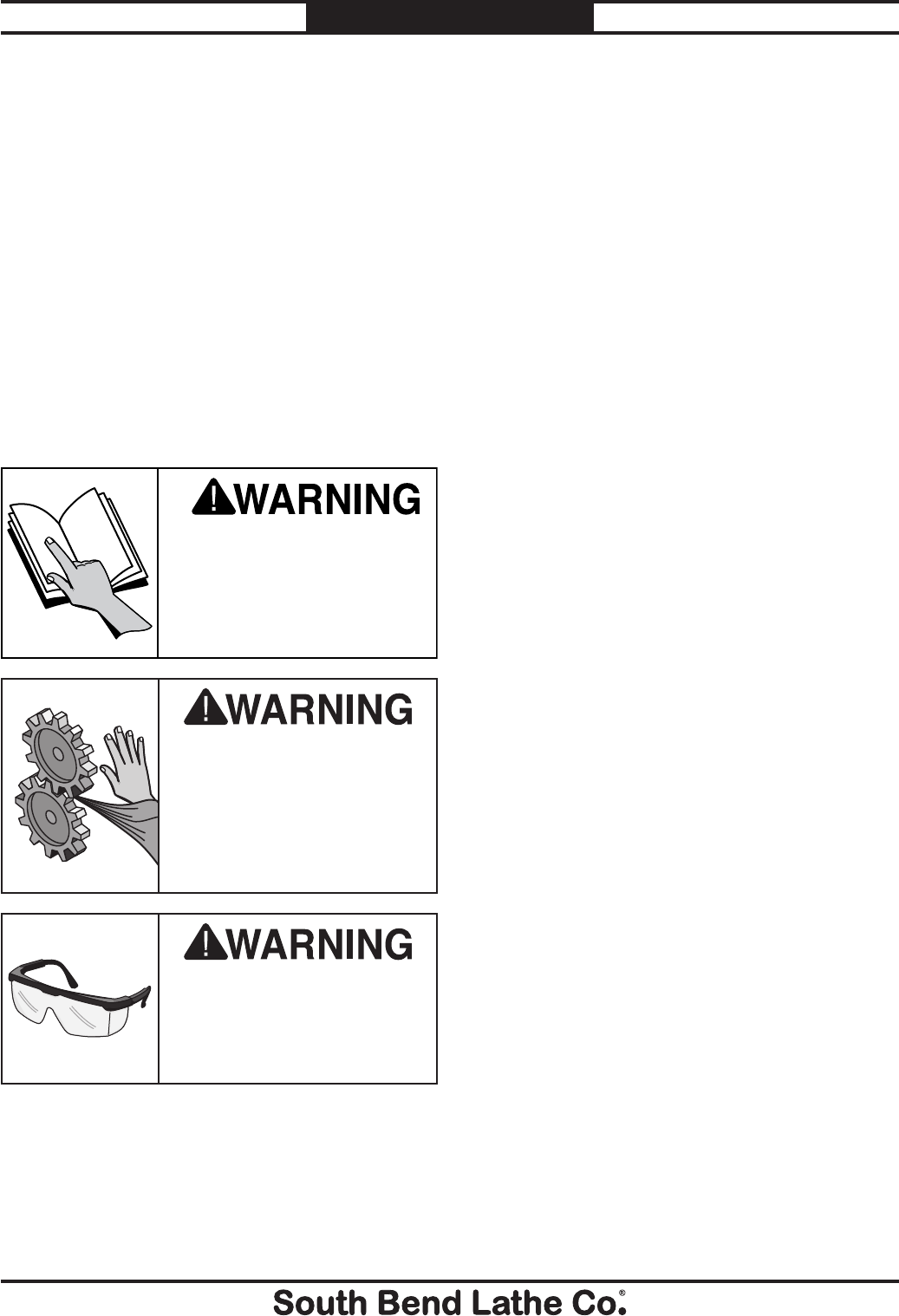
OPERATION
-36-
For Machines Mfg. Since 3/11
Turn-Nado
®
EVS Lathes
OPERATION
Operation Overview
To complete a typical operation, the operator
does the following:
1. Puts on safety glasses, rolls up sleeves,
removes jewelry, and secures any clothing,
jewelry, or hair that could get entangled in
moving parts.
2. Examines the workpiece to make sure it is
suitable for turning, then securely mounts
the workpiece in one of the chucks or on the
faceplate, and removes the chuck key from
the chuck.
3. Mounts the tooling, aligns it with the
workpiece, then backs it away to establish a
safe startup clearance.
4. Clears all setup tools from the lathe.
5. Checks for safe clearances by rotating
the workpiece by hand at least one full
revolution.
6. Moves slides to where they will be used
during operation.
7. Sets the correct spindle speed for the
operation.
8. If using power feed, selects the proper feed
rate for the operation.
9. Turns the master power switch ON, resets
the STOP button, then uses the spindle lever
to start spindle rotation.
10. Uses the carriage handwheels or power
feed options to move the tooling into the
workpiece for operations.
11. When finished cutting, moves the spindle
lever to the OFF position, presses the foot
brake to completely stop the spindle, then
removes the workpiece.
To reduce the risk of
serious injury when using
this machine, read and
understand this entire
manual before beginning
any operations.
The purpose of this overview is to provide
the novice machine operator with a basic
understanding of how the machine is used durin
g
operation, so they can more easily understand
the controls discussed later in this manual.
Note: Due to the generic nature of this overview,
it is not intended to be an instructional guide
for performing actual machine operations.
To learn more about specific operations and
machining techniques, seek training from people
experienced with this type of machine, and do
additional research outside of this manual by
reading "how-to" books, trade magazines, or
websites.
Loose hair, clothing, or
jewelry could get caught
in machinery and cause
serious injury or death.
Keep these items away from
moving parts at all times to
reduce this risk.
During operation, small
metal chips may become
airborne, leading to serious
eye injury. Wear safety
glasses to reduce this risk.



